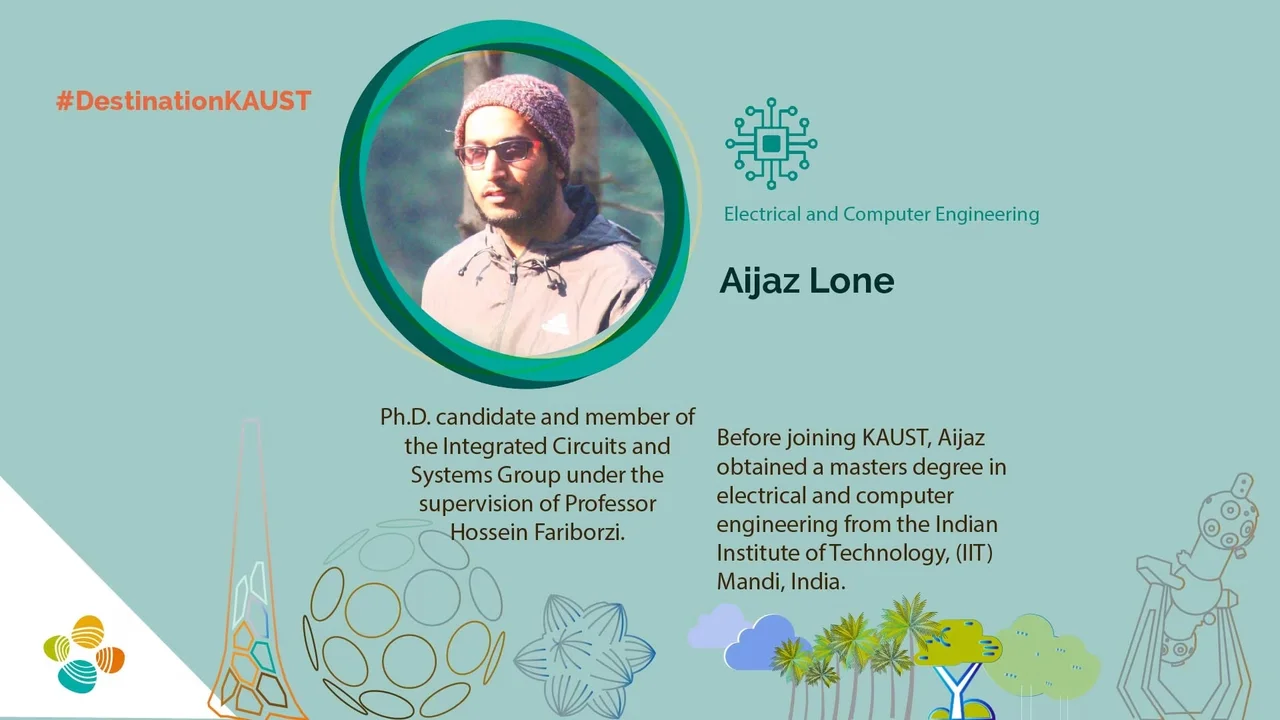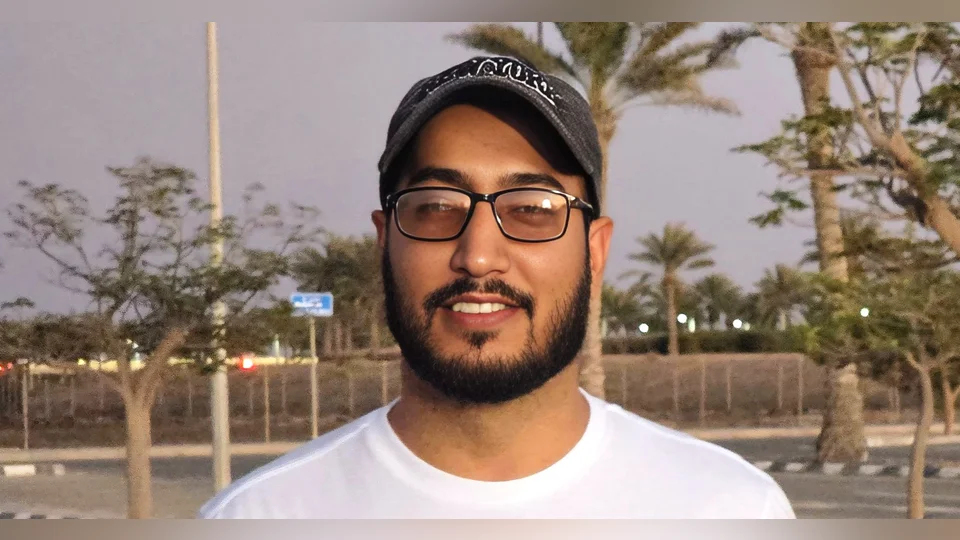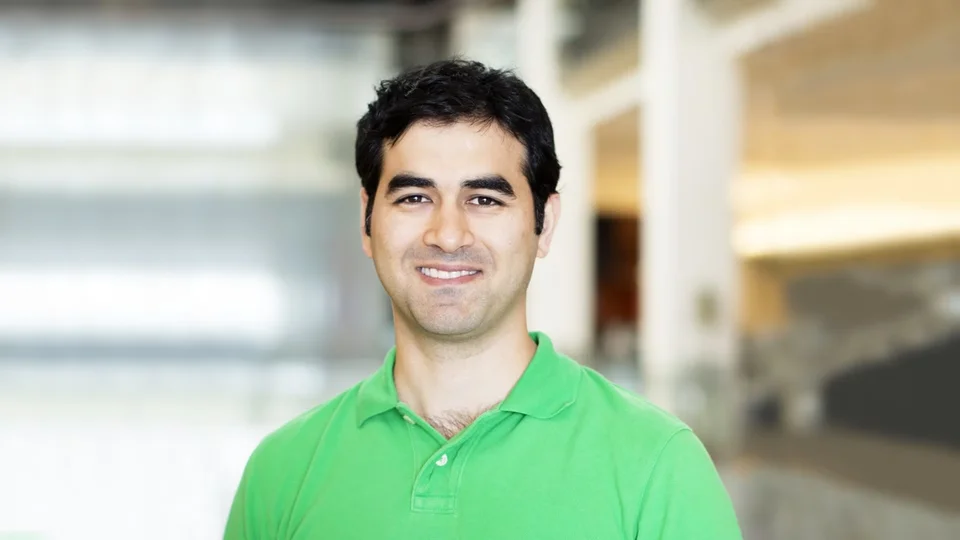
Meet KAUST New Student: Aijaz Lone
Aijaz Lone is a M.S. graduate in electrical and computer engineering from the Indian Institute of Technology (IIT), India. Lone first came to KAUST as a visiting student in 2020 and was instantly impressed by the facilities he encountered. It was these very facilities that piqued his interest in joining the University as a Ph.D. student to pursue his research career.
About
By Taruna Rapaka
Aijaz Lone is a M.S. graduate in electrical and computer engineering from the Indian Institute of Technology (IIT), India. Lone first came to KAUST as a visiting student in 2020 and was instantly impressed by the facilities he encountered. It was these very facilities that piqued his interest in joining the University as a Ph.D. student to pursue his research career.
Aijaz joined KAUST in spring 2021 as a Ph.D. candidate and member of the Integrated Circuits and Systems Group under the supervision of Professor Hossein Fariborzi.
What was your main subject during your master’s degree? Why did you choose it?
My main subject during my master's was the modeling of spin transport and magnetization dynamics in spintronic devices. Ever since Moore’s law in the 70s, device scaling seems to have hit the wall. There is a lot of research scope in the Beyond CMOS devices as a parallel alternative for computing. Being fascinated by quantum physics, I chose to work in the area of spintronics. In spintronics, we exploit the spin degree of an electron to develop energy-efficient and scalable devices for logic and memory.
Why have you chosen to pursue a Ph.D. at KAUST?
KAUST provides me with enough independence and resources to take up challenging ideas that I can hypothesize and simulate with the great computing capabilities available here, such as the KAUST Core Labs.
When did your interest in electrical and computer engineering begin? What are your research interests?
From my school days, I was always amazed by quantum physics and its applications. So, I found electronics engineering to be the best starting point of my science and engineering journey to learn and contribute to science and society. My research interest lies broadly in the nanoelectronic devices for unconventional computing.
My main research area is neuromorphic spintronics and the proposal and development of spintronic devices and circuits for brain-inspired computing.
What do you do in your spare time?
I like to watch sci-fi and inspirational movies and sometimes play cricket and soccer.
What is your future outlook?
In the future, I see myself working in the area of spintronic devices for neuromorphic computing. For my postdoc, I plan to bridge my spintronic work with quantum computing. I would like to join academia and continue my research in this area.
Can you give a piece of advice to students who plan to pursue a M.S./Ph.D. at KAUST?
KAUST is an amazing place to do science and engineering. Although KAUST is a new university, its research output is on par with the top-ranked global universities.

